The United Nations Human Rights Council has unanimously adopted a resolution marking a major milestone in the recognition and protection of the rights of older persons. This text establishes an intergovernmental working group tasked with drafting a legally binding convention, thereby addressing a longstanding gap in international law.
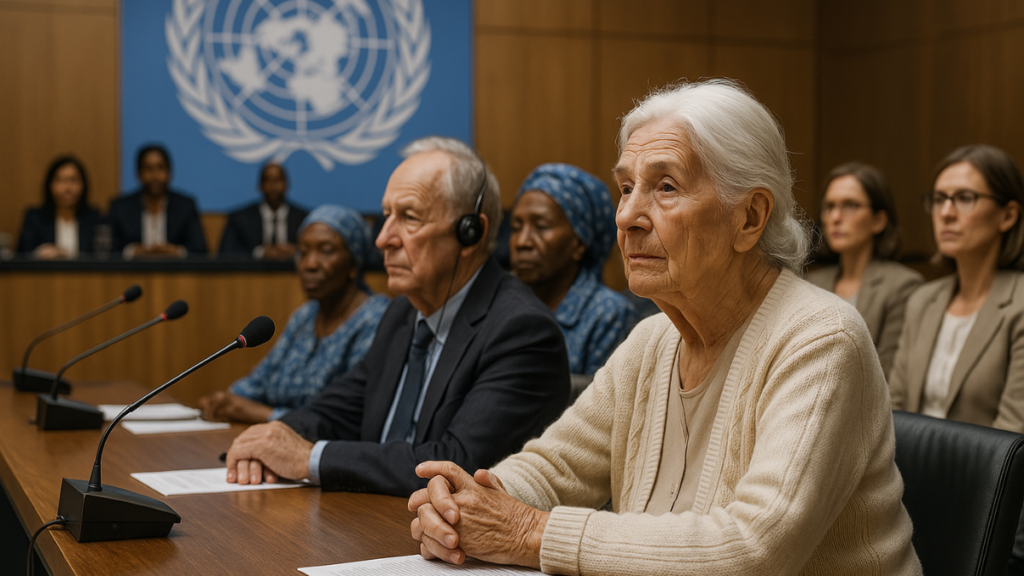
- The UN launches the drafting of a convention on the rights of the elderly
- The goal: global recognition of ageism as discrimination to be combated
- Historic mobilization of civil society and international NGOs
- The first session of the working group is scheduled for the end of 2025
- Towards universal legal protection of the right to age with dignity
Towards stronger legal protection for older persons
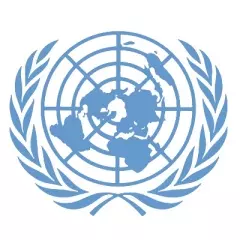
Despite the rapid growth of the elderly population worldwide, their rights have often been overlooked. No current international convention specifically addresses their needs, nor explicitly prohibits age-based discrimination (ageism). This initiative seeks to remedy these systemic shortcomings.
Elena Sergi, an activist with Amnesty International, welcomed this development as “a major step forward in the fight to protect the rights of older people.” She emphasized the need for full and effective participation of civil society and organizations representing older persons at every stage of the process.
Violations of the rights of older persons too often ignored
Older persons face numerous abuses: physical violence (particularly in institutions), social and political exclusion, discrimination in access to employment, healthcare, and social protection, and a general lack of inclusion in public policies. Their vulnerability is further heightened in humanitarian crises, armed conflicts, and in the face of climate change.
Organizations such as Amnesty International, Human Rights Watch, HelpAge International, and the Global Alliance for the Rights of Older People (GAROP) have long denounced the lack of specific protections. Amnesty’s “Age Loud!” campaign notably helped elevate the issue to the international stage.
Rights of older persons : A victory after more than a decade of efforts
Since 2010, a UN open-ended working group on ageing has assessed the shortcomings of the existing framework. Fourteen sessions have been held, clearly demonstrating the need for a dedicated international instrument. More than 400 GAROP member organizations supported the call to action.
This mobilization led, in May 2024, to a unanimous recommendation by UN member states in favor of stronger measures. The April 3, 2025 resolution formalizes this political will.
A growing global awareness
Five countries played a crucial role in this landmark decision: Argentina, Brazil, The Gambia, the Philippines, and Slovenia. Their commitment reflects a growing global awareness that population ageing is a universal phenomenon requiring a coordinated international response.
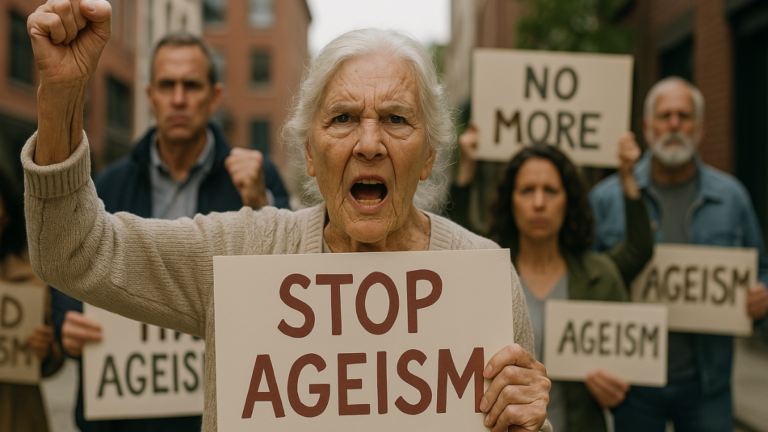
Marcus Riley, a representative of the Global Ageing Network, praised this decision “a historic decision that will transform the lives of millions of older people around the world.”
Next steps
The newly established working group is expected to hold its first organizational session before the end of 2025. Two annual meetings are planned in Geneva, with live streaming to ensure transparency. UN member states, NGOs, and older persons themselves will be actively involved in drafting the text.
AGE Platform Europe, a key partner in the process, plans to conduct inclusive consultations, webinars, trainings, and meetings to ensure that the lived experiences of older persons are fully reflected in the final document.
Towards a universal convention on the rights of older persons
The forthcoming convention could include several key provisions:
- An explicit prohibition of age-based discrimination
- Equal access to justice, healthcare, and social services
- Enhanced protection in humanitarian crises or conflict situations
- A requirement for member states to adopt non-discriminatory legislation
- Recognition of the contributions of older persons to society
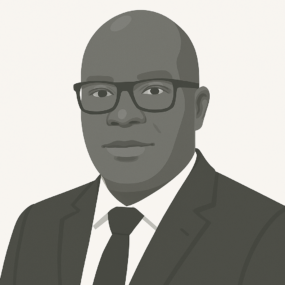
To move forward, it is essential that civil society—especially older people and the organizations representing them, be fully and effectively involved. Transparency and inclusivity must be at the heart of this process.
Andrew Kavala, Executive Director of the Malawi Network of Older Persons’ Organisations (MANEPO), member of the HelpAge Global Network

A recognition of the right to age with dignity
This initiative marks a profound shift in the way human rights are viewed on the international stage.
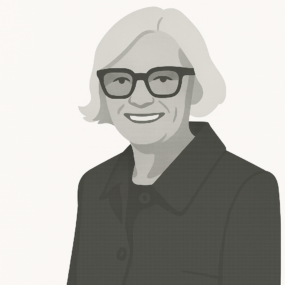
Ageism, age-based discrimination, and violations of the rights of older persons deserve the same level of attention and protection in the international human rights system as any other rights violations.
Bridget Sleap, Human Rights Watch
Through this initiative, the UN reaffirms a fundamental principle: every human being, regardless of age, has the right to a life of dignity, respect, and legal protection.
Published by the Editorial Staff on
